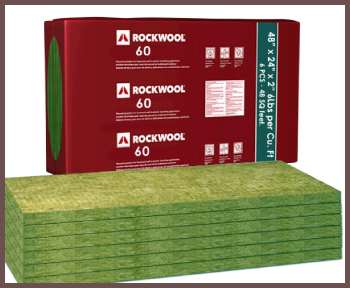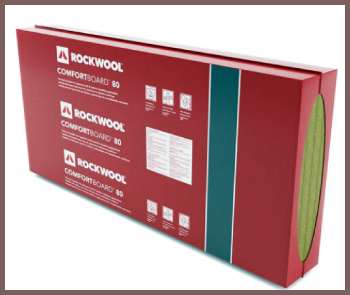When it comes to the world of acoustic insulation, Rockwool products, specifically Rockwool 60 and 80, have cemented their place as industry staples. So, if you’re facing the conundrum of choosing between these two, you’re in the right place.
Let’s take a deep dive into the world of Rockwool 60 and 80, discussing their pros and cons, and determine which one may be the perfect fit for your needs.
A Brief Comparison Table
| Feature | Rockwool 60 | Rockwool 80 |
| Density | 60 kg/m³ | 80 kg/m³ |
| Ease of Handling | Easier due to lower density | More challenging due to higher density |
| Cost | Generally less expensive | Generally more expensive |
| Sound Absorption | Good, but not as effective at lower frequencies | Superior, especially at lower frequencies |
| Fire Resistance | Good | Superior due to higher density |
Unraveling the Mystery: What is Rockwool?
Before we delve into the specifics of Rockwool 60 and 80, it’s essential to comprehend what Rockwool is. Rockwool is a type of mineral wool insulation made from natural stone and recycled slag. It’s prized for its exceptional thermal insulation properties, fire resistance, and, most importantly, its ability to dampen sound.
Rockwool 60: The Lightweight Contender

Rockwool 60 is the more lightweight option of the two, with a density of 60 kg/m³. Its lower density makes it easier to handle and install, which can be a significant advantage for DIY enthusiasts.
Pros of Rockwool 60
- Easier to Handle
Its lower density translates into easier handling and installation.
- Cost-Effective
It is generally less expensive than Rockwool 80, making it a budget-friendly option.
- Excellent Sound Absorption
Despite its lower density, it still offers impressive sound absorption capabilities.
Read More: Differences Between Grunt Style And Nine Line
Cons of Rockwool 60
- Lower Sound Absorption
While it still provides decent sound absorption, it’s not as effective as Rockwool 80, especially at lower frequencies.
Rockwool 80: The Heavyweight Champion

On the other hand, Rockwool 80, with a density of 80 kg/m³, is the more robust option. It’s designed for more demanding applications that require higher sound absorption and fire resistance.
Pros of Rockwool 80
- Superior Sound Absorption
Due to its higher density, Rockwool 80 offers superior sound absorption, particularly at lower frequencies.
- High Fire Resistance
It provides enhanced fire resistance compared to Rockwool 60.
Cons of Rockwool 80
- Heavier and Harder to Handle
Its increased density makes it heavier and more challenging to install.
- More Expensive
It is generally more costly than Rockwool 60, which can be a deterrent for some.
Rockwool 60 vs 80: A Comparative Analysis
When choosing between Rockwool 60 and 80, your decision should be guided by your specific needs. If you’re on a budget and working on a DIY project, Rockwool 60 might be your best bet. However, if you’re looking for superior sound absorption and fire resistance, Rockwool 80 will serve you better.
Frequently Asked Questions (FAQs)
While both Rockwool 60 and 80 can be used for acoustic panels, Rockwool 80, with its superior sound absorption, especially at lower frequencies, is generally considered the better option.
Rockwool 80 offers superior sound absorption due to its higher density, making it the better choice for sound insulation.
Rockwool is widely regarded as one of the best materials for broadband absorption. Its dense fibrous structure allows it to effectively absorb sound across a wide frequency range.
Rockwool 80 is often recommended as the best mineral wool for sound panels because of its superior sound absorption capabilities, particularly at lower frequencies.
The choice of Rockwool density depends on your specific needs. If your priority is sound insulation, opt for Rockwool 80. If budget and ease of installation are your primary concerns, Rockwool 60 may be a better choice.
While various insulation types can be used for soundproofing, Rockwool, specifically Rockwool 80, is often cited as the best option due to its superior sound absorption capabilities.
Read More: AER Travel Pack 3 And Peak Design Travel Bag
The Final Word
The debate between Rockwool 60 and 80 is not about which one is inherently better, but about which one fits your needs best. If superior soundproofing is your primary goal, Rockwool 80 might be the better choice. However, if you’re on a budget and value easy installation, Rockwool 60 can be a viable alternative.
Remember, the best choice will always be the one that meets your specific needs and preferences. By understanding the pros and cons of Rockwool 60 and 80, you’re well-equipped to make an informed decision. So, whether you’re creating a home recording studio, soundproofing a noisy room, or tackling a large-scale construction project, rest assured that there’s a Rockwool product out there that’s perfect for you.



